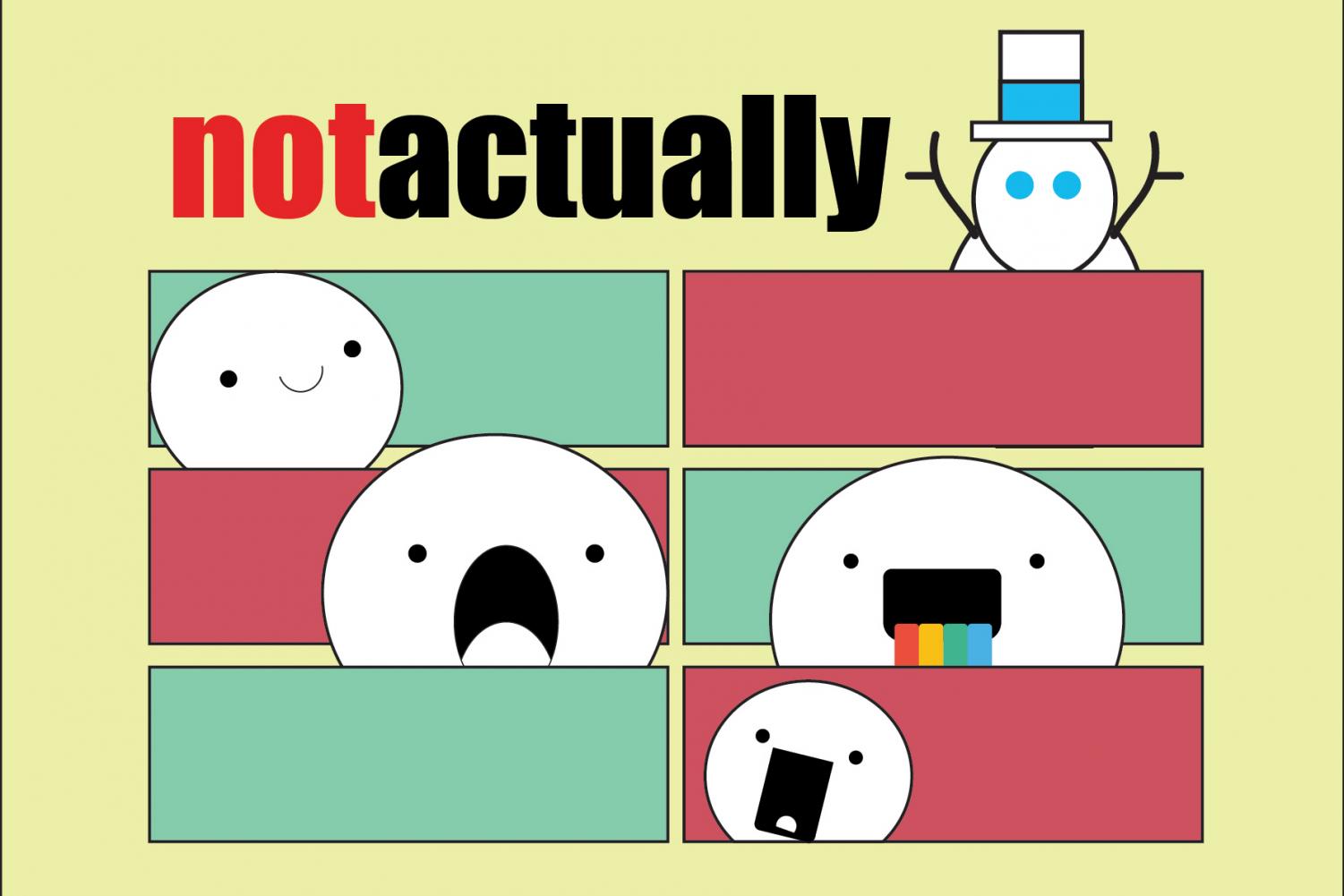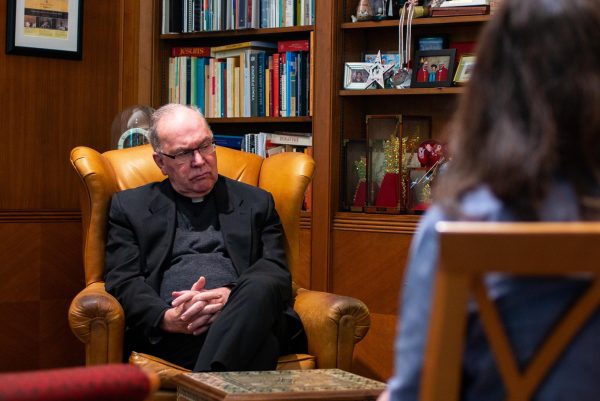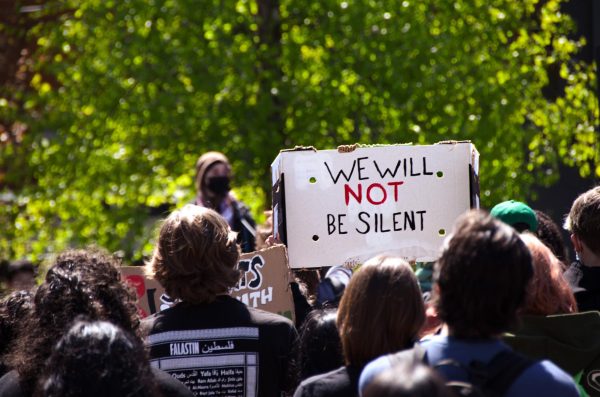Holiday Films: It’s the Most Cliché Time of the Year
The long-awaited break after fall quarter is right around the corner, and with that, the holidays are here too. Hopefully, break gives students a chance to relax and unwind, and for many that routine includes binging movies or tv shows.
Perhaps holiday movies will be tossed into the mix. Afterall, ‘tis the season. The holiday TV and movie craze presents itself in a multitude of ways: 12 Days of Christmas marathon, Netflix Originals, Hallmark channel and even Food Network.
It can seem impossible to channel surf—or flip through a streaming service catalogue—without stumbling upon a Christmas related program.
“I’d love to see more holidays illustrated during these holiday times to get different perspectives in celebrations”
For example, on Netflix when “holiday” is typed into the search bar, a result of 29 movies comes up. Out of these films, two featured a person of color in the picture. Though the film category is “holiday,” all of the films shown have to do with Christmas. There was no mention of Kwanzaa, Hanukkah or other holidays celebrated in the winter.
Saeed Alameri, a senior accounting major, loves Christmas films and media, but he is someone who cannot see himself in these films, as he does not celebrate the holiday. Despite this, he still enjoys watching these films because American pop-culture is latched onto these films.
“They feel like a lens to a different culture. Seeing how different cultures have different festivities yet share the same values of human kindness is always so nice to me,” Alameri said.
In romantic comedies centered around the holidays, films often aim to touch on people’s soft spots because of the sentimental aspects of the holidays, as families tend to gather and give or receive gifts.
“Often times, we are dealing with those very normative assumptions around romance,”
Though Alameri said he doesn’t think he could ever get tired of watching Christmas type media, he said that more diversity is needed in the holiday entertainment sector.
“I’d love to see more holidays illustrated during these holiday times to get different perspectives in celebrations,” he said.
Not only do these films lack representation of different religions or traditions, but there are major problems in these types of films that seem to be swept under the rug because, “Ugh, that leading actor is just so cute.”
This is true in romantic comedies especially. A romantic comedy has a very specific recipe that Kirsten Moana Thompson, director of Seattle University’s Film Studies Program, said has been around since the days of theatre.
Thompson said that these films often feature a female protagonist who is going through some form of a relationship roadblock with their boyfriend, in which their boyfriend needs to “prove themselves to their partner.”
“Often times, we are dealing with those very normative assumptions around romance,” Thompson said.
She further explained there is a stereotypical behavior about women and organization around finding a partner. As to why a plethora of these types of movies exist during the holidays, Thompson explained that the holiday season serves as an extra adversity.
“In terms of rom-coms, the popular storyline usually involves a privileged, heterosexual relationship with a male and a female falling in love. Rarely is there a popular rom- com about a couple who are part of the LGBTQ+ community and is portrayed accurately or in the same light as a straight couple”
For example, “Love Actually”, released in 2003, remains a fan favorite during the holiday season. “Love Actually” has multiple plot lines that for the most part, seem to center around some intrapersonal issue as people search for love and happiness leading up to Christmas.
Hazel Hahn, a film and history professor, views the film more critically as a romance film.
“Some of the things that critics found problematic had to do with the depictions of relationships. [Love Actually] is very heterosexual, and very traditional in lots of other ways,” Hahn said.

Hahn further explained that though the film was made in 2003, it is an example of the same issues the #MeToo movement addresses, because the film romanticizes and normalizes a harmful gender power dynamic in a work setting.
“One of the ways some of the critics found it problematic was that some of the male characters were falling in love with younger female employees at workplaces where they are the direct supervisors,” Hahn said.
People still watch films with blatant issues, Hahn explained, due to a popular desire for holiday movies and a U.S. film tradition of happy endings. She said that this expectation can make people think it is okay for these toxic relationships to exist in the romantic-comedy cinematic universe.
“I feel very mixed about the film, and I do wish the audience would have a more critical perspective on some of the more obviously problematic aspects of the film,” Hahn said.
Luckily, people are starting to realize these issues because today’s culture does not allow it to go unnoticed. Nick Peña, second year pre-major, said that his favorite Christmas movie is not a rom-com—it’s “How The Grinch Stole Christmas” from 2000. However, Peña still sees issues within many holiday rom-coms.
“In terms of rom-coms, the popular storyline usually involves a privileged, heterosexual relationship with a male and a female falling in love. Rarely is there a popular rom-com about a couple who are part of the LGBTQ+ community and is portrayed accurately or in the same light as a straight couple,” he said.
Along with sexuality, Peña noted that the erasure of other cultures exists in holiday films, even if a person of color is on the screen.
Hahn discussed a romantic comedy from the Soviet Union and how it is impactful rather than just strictly entertainment filled with problems. The film is titled “The Irony of Fate, or Enjoy Your Bath!” directed by Eldar Ryazanov. The film has romance and comedy, but subtly demonstrates a critique of societal issues, such as the housing shortage and the uniformity of cities in the Soviet Union in the 1970’s.
Hahn said this is a well-done holiday rom-com because while it is entertainment, it does not play on gender stereotypes or power relations and instead explores issues the Soviet Union faced during that time.
Senior Film major Barbara Hoffman agrees with this notion of exploring deeper themes in rom-coms, but there are only certain rom-com films that do that, which are the ones focused on art.
She summarized rom-coms as being on a spectrum from art to equations— with Hallmark type films being on the equation side. Hoffman said that she thinks these Hallmark films are there merely for entertainment and that people love them despite their recycled content and predictable plotlines. They will never stop creating these movies because the equation proves to work again and again.
In 2019, Hallmark churned out 24 new Christmas movies. But who would watch 24 new Hallmark movies when hundreds of them already exist that are just like the new ones?
“I like to think of it as potato chips versus a meal. You can consume a lot of Hallmark movies in the background and just snack on them. You do not have to really think about it or critique it, because it takes more effort to actively watch a film and sometimes you don’t want to put in the effort,” Hoffman said.
For Hoffman, her favorite rom-com are also not necessarily holiday films, as classics such as “Clueless” and “10 Things I Hate About You” are in the mix for her. However, she has seen the movie “The Holiday” and believes it isn’t “that bad” for being a holiday film.
Yet, that is the fun of the holidays: any movie watched during the holiday season may become a “classic” for each respective person. For those who do not want to even remotely invest in or listen to any kind of holiday rom-com, there is always the option of throwing on Netflix’s Fireplace for Your Home: Classic Edition.
Micheala may be reached at [email protected]











